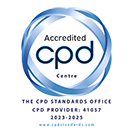2 March 2015
The impact of actively making music on the intellectual, social and personal development of children and young people: A research synthesis
Organised by:
SCI's London Group in partnership with UCL's Chemical Physical Society
UCL, London
Registration Closed
This event is no longer available for registration.
Synopsis
This presentation draws on research from neuroscience, psychology, education and music to set out our current understanding of the ways in which active engagement with music can impact on the intellectual, social and personal development of children and young people. The findings reveal that there is considerable and compelling evidence that musical training sharpens the brain's early encoding of sound leading to enhanced performance on a range of listening and aural processing skills which in turn contribute to enhanced verbal memory, language skills and enhanced literacy.
There is also compelling evidence for the impact of music making on spatial skills and to some elements of mathematical performance. Enhanced verbal and spatial reasoning skills also contribute to higher levels of performance on measures of intelligence.
There is also emerging evidence that making music may impact on executive functions and self-regulation both of which are implicated in test performance and in general academic attainment where musicians perform better than might be expected based on their measured intelligence.
Many musicians exhibit higher levels of conscientiousness which may also be implicated. The enhancement of aspirations which can be an outcome of musical activities for some children may also be important. Group music making has been used successfully to re-engage disaffected young people including those in the criminal justice system and supports social cohesion, the development of team working and a range of social skills including empathy. It can also contribute to enhanced self-beliefs although this depends on the nature of the feedback received from others, i.e whether it is positive or negative.
Music is increasingly being recognised for its beneficial effects on physical health and wellbeing throughout the lifespan from premature babies to those in their senior years. There is limited evidence of its impact on physical development.
Overall, there is accruing evidence which indicates that actively making music can contribute to the enhancement of a range of non-musical skills and lead to other beneficial outcomes. Research continues to explore the circumstances under which these benefits may occur. To date, the evidence suggests that benefits are enhanced when training starts early (before the age of seven) and continues over a long period of time. The type of training, the instrument played, and the quality of the teaching are all contributing factors. Group music making needs to be highly interactive and enjoyable with opportunities for: developing new skills and performing; acquiring cultural capital; developing interpersonal bonds and solidarity in pursuing shared goals; developing mutual respect; and providing recognition and rewards for excellence. Receiving positive affirmation from others relating to musical activities, particularly performance is crucial in enhancing self-beliefs whatever the age of the participants. If performances are in high states cultural venues, the impact is enhanced.
Programme
Accessibility Grants
SCI accessibility grants are available to support SCI members with disabilities, long term health conditions, those who require a carer, and members who are nursing parents to attend SCI events. Download an application form to apply for a grant.
Venue and Contact
UCL
Department of Chemistry
University College London
20 Gordon Street
London, WC1H 0AJ
Please click here for a location map.
The lecture will be preceded by tea/coffee in the Nyholm room and followed by a Mixer in the Nyholm Room.
SCI Comms Team
Tel: 0207 598 1594
Email: Communications@soci.org
Fees
Become an SCI Member and save on this and future events
See Membership OptionsSign up as an Event Member to join this event. SCI Full or Student Members receive discounts on event registrations
Booking Process/Deadlines
CPD Info
All delegates attending this meeting are able to claim CPD points.
Additional Info
Exhibition and Sponsorship
An exhibition will take place alongside the conference for companies and related organisations who may wish to exhibit. Please email conferences@soci.org for further information and prices. Spaces are limited and will be allocated on a first-come, first-served basis.





